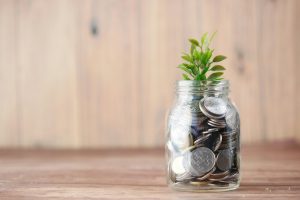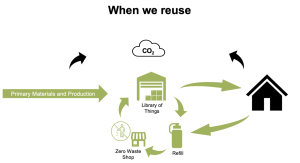Is a sustainability strategy right for your organisation? We would say yes! Whatever your organisation covers, there is always opportunity to develop your strategies and lower your environmental impacts. It is often competing priorities that affect the timing of any organisation to take that step, but more and more sectors are seeing the benefits. Our latest project at Credibly Green has shown just how much progress can be made in any type of organisation via an appropriate, strategic focus on lowering environmental impacts.
Over the last 12 months we have been working with The Donkey Sanctuary, a global donkey welfare charity with 15 UK sites, developing a suite of sustainability packages including a sustainability strategy, environmental position statement and carbon modelling programme. Sustainability at The Donkey Sanctuary is of high importance. Donkeys and climate change are perhaps a link that not many people would make, however, The Donkey Sanctuary’s global reach across Africa, Latin America and South Asia has enabled them to see the impacts of climate change on people living in less economically developed countries first hand, and can see directly how important it is to address the impact that climate change has on global ecosystems and communities by acting locally and operating in more sustainable way.
Donkeys are a valuable asset to those in countries most commonly affected by the impacts of climate change as it disproportionately affects low to middle income countries, however the lowest income countries produce just one tenth of emissions.[1] Populations living in these areas suffer greater damage in terms of health, food, water and education due to the global consequences of climate change. Donkeys have an important role in helping communities find sustainable ways of adapting to the effects of climate change. They can also play a crucial part in recovery from climate change events, for example extreme weather. Donkeys provide a facility for owners to participate in work, enhancing their ability to earn money, and they also promote gender equality by their application as a tool for accessing essential services and female employment opportunities.
Climate change can also impact both human and animal health, for example hotter temperatures can result in the spread of infectious diseases and healthy and well cared for animals can reduce the spread leading to healthier communities. By improving donkey welfare, communities can become more resilient and stronger against fighting climate change, enhancing their abilities to recover from climate change events. In view of this, Credibly green needed to develop a strategy based on lowering emissions and enhancing sustainability across the board, developing a pathway for acting locally and thinking globally for long term strategic development.
Our initial work focussed on generating a review of current sustainability practices carried out at The Donkey Sanctuary, and then the development of a carbon model. This enabled us to see where the greater environmental impacts of the organisation were. Scope 1, 2 & 3 emissions were covered in the carbon modelling which enabled a broad approach, ranging from fleet impacts through to donkey feed, veterinary activity and even donkey digestion! Assessing key carbon outputs which were tangible, and had the potential for change, enabled us to develop clear and targeted goals for lowering carbon emissions across the organisation.
The assessment of current practices also enabled us to focus on high value areas for The Donkey Sanctuary. Current practices ranged from conservation work, reducing waste, and conserving resources and energy. These areas enabled us to focus on having a strategic plan of improvement that The Donkey Sanctuary could enhance and improve over time, outlining key commitments. Actions developed from the strategy were also explored and aligned with the United Nations Sustainable Development Goals (SDGs). The SDG analysis was an important part of the strategy, as it facilitated a global impact reach for the organisation to work towards, influencing sustainability impacts whilst simultaneously making a global contribution on which progress can be monitored.
Sustainability can be applied to any type of organisation, and each organisation can have a significantly positive impact, not only in their sector, but as a regional, national, and global movement. Working animals have an important role to play in human activity, particularly in low to middle income countries. They too are experiencing the impacts of climate change via extreme weather events, and the additional burdens that are placed upon them to act in recovery roles from these events. Therefore, as an animal welfare sector it is important to begin the task of lowering emissions and improving sustainability operationally at a local level, and strive towards becoming an advocate for environmental sustainability globally.
Working with The Donkey Sanctuary has shown that developing a sustainable operational model across all sectors is becoming increasingly important as the need develops to monitor our environmental goals more stringently. Regardless of size, sector and operation, organisations can make a positive difference by assessing their current impacts, and producing a targeted strategy for developing more sustainably. The application to the animal welfare sector has illustrated the leading role that the third sector can take in making a positive and sustainable contribution to operating more responsibly and advocating for the environment.
Credibly Green provide technical advice to clients on all things carbon and sustainability. See www.crediblygreen.com or call 01746 552423 or email support@crediblygreen.com
[1] https://www.weforum.org/agenda/2023/01/climate-crisis-poor-davos2023/




